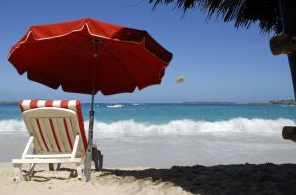
If new plans go ahead the Cayman Islands could see their first income tax introduced, targeting only expats, it’s caused a lot of upset.
Last month the Cayman Islands announced what amounts to the territory’s first ever income tax. The Islands have long been revered as a sunny, tax-free haven for thousands of lawyers, accountants and other workers from around the globe. Now, however, this British territory looks set to change its image as the Premier McKeeva Bush announced the “Community Enhancement Fee” in early July.
This tax would ultimately affect foreign workers who have built the Islands’ reputation as a famous, or notorious, offshore banking centre that offers tax advantages for foreign investment. Cayman Island business leaders have proposed alternative schemes this week. Premier Bush initially accepted these alternative plans but later responded by saying that the tax would “only be withdrawn if alternative revenue measures that do not affect the ordinary Caymanian can be implemented”, the Cayman News Service reported over the weekend.
The 10 percent payroll tax would be levied on expatriates whose permits allow them to work in the islands. The premier has clarified the tax would only be applicable to foreign workers who earn $36,000 per year. The tax would start “at 10% on earnings of that level and above, and will not be incremental”, according to the CNS.
“The discriminatory nature of the tax has stirred up so much uncertainty for people who moved here thinking they knew what they were getting into,” Paul Fordham, an insurance sector specialist from the London area who moved to the main island of Grand Cayman 6 1/2 years ago told the AP. His recent attempt to sell his house collapsed because an interested buyer was spooked by the prospect of the islands’ first direct tax.
The tax has come in response to pressure from the British Foreign and Commonwealth Office (FCO), said Premier Bush. The FCO has demanded the territory diversify its income beyond the duties and fees it currently relies on, which have left the government with a budget deficit.
Opponents of the tax argue it may be breaking a social contract as it targets only the roughly 5,875 expats who earn more than $36,000 a year. Many other competing tax havens such as Jersey and the Isle of Man impose an income tax on workers but don’t target one particular group.
Bush said he is looking for any feasible alternative to alleviate the government’s revenue issues. On Saturday, he told local TV station Cayman 27 that he was open to recasting the “community enhancement fee” on expats but only “if a solution can be found that does not affect ordinary Caymanians.”
HEADS UP! This isn’t happening anymore… thank god!
( http://expatsvillage.com/2012/08/cayman-islands-tax-backtrack/ ).